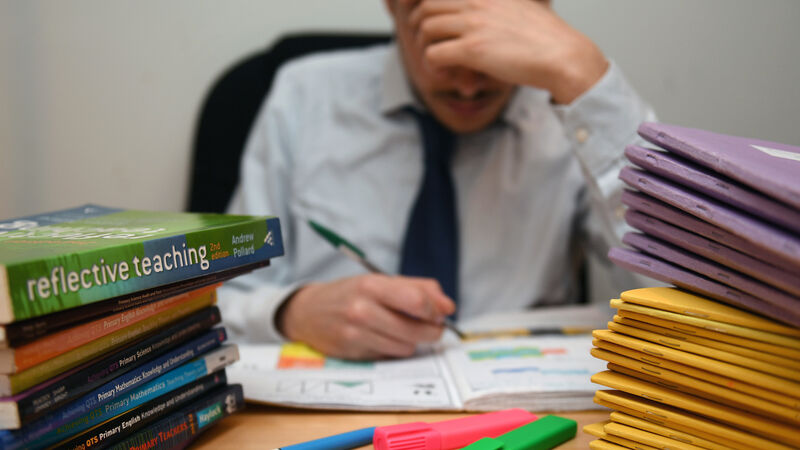Burnout may drive more than 40% of teachers out of profession, study finds

Some 86% of teachers reported moderate to high levels of personal burnout. File photo
Significant burnout may be driving teachers to leave the profession as a new study on occupational wellbeing finds high levels of the condition caused by prolonged and unmanaged workplace stress.
As concerns about retaining teachers continue to grow, the first study of its kind here finds high levels of poor mental health amongst both primary and post-primary teachers.










